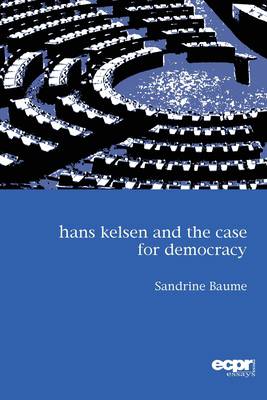
Door een staking bij bpost kan je online bestelling op dit moment iets langer onderweg zijn dan voorzien. Dringend iets nodig? Onze winkels ontvangen jou met open armen!
- Afhalen na 1 uur in een winkel met voorraad
- Gratis thuislevering in België vanaf € 30
- Ruim aanbod met 7 miljoen producten
Door een staking bij bpost kan je online bestelling op dit moment iets langer onderweg zijn dan voorzien. Dringend iets nodig? Onze winkels ontvangen jou met open armen!
- Afhalen na 1 uur in een winkel met voorraad
- Gratis thuislevering in België vanaf € 30
- Ruim aanbod met 7 miljoen producten
Zoeken
€ 32,45
+ 64 punten
Omschrijving
Hans Kelsen and the Case for Democracy is a contextual analysis of this famous jurist's political thought. Kelsen's works are usually reduced to his theory of law, and his reflections on democracy are often ignored. The great strength of Kelsen's political thinking lies in the largely original arguments that it musters against the critics who condemn or debunk the institutions of parliamentary democracies. This study assesses Kelsenian democratic theory by exploring three questions: first, how is Kelsen's political theory intertwined with his legal theory? Second, how does Kelsen combine his reflections on the democratic ideal with his appreciation of a reality that more often than not quite distant from that ideal? Third, how does Kelsen conceive of the sources of the state's cohesion in a democracy?
Specificaties
Betrokkenen
- Auteur(s):
- Uitgeverij:
Inhoud
- Aantal bladzijden:
- 90
- Taal:
- Engels
- Reeks:
Eigenschappen
- Productcode (EAN):
- 9781907301247
- Verschijningsdatum:
- 1/12/2012
- Uitvoering:
- Paperback
- Formaat:
- Trade paperback (VS)
- Afmetingen:
- 156 mm x 234 mm
- Gewicht:
- 140 g

Alleen bij Standaard Boekhandel
+ 64 punten op je klantenkaart van Standaard Boekhandel
Beoordelingen
We publiceren alleen reviews die voldoen aan de voorwaarden voor reviews. Bekijk onze voorwaarden voor reviews.











